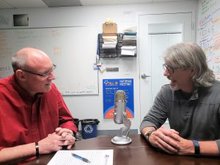Found 3 resources.
0
0
0

Asset-based community development (ABCD) is a large and growing movement that considers local assets as the primary building blocks of community development, social capital, and health and well-being. Ron Dwyer-Voss, MA, the Owner of Pacific Community Solutions, who also happens to be a long-time friend of podcast host Peter Eckart, joined the show to discuss how ABCD draws on existing strengths of local residents, associations, and institutions to build stronger, healthier, and more sustainable communities. He shared strategies, tools, and examples of how ABCD can be used to engage community...
Topics: Asset building, Community development, Health, Partnerships
 Shared by Housing Is
on Mar 19, 2019
Shared by Housing Is
on Mar 19, 2019 0
0
0
Affordable housing campaigns are not new, of course, but what is unprecedented and transformative about Opportunity Starts at Home is the scope and diversity of the partners that are joining forces to advocate for more robust and equitable federal housing policies. The campaign is advised by a Steering Committee including leading national organizations representing a wide range of interests that are working shoulder-to-shoulder to solve the affordable housing crisis.
Topics: Asset building, Child welfare, CLPHA, Community development, Early childhood, Education, Food insecurity, Funding, Health, Homelessness, Housing, Immigrants, Legislation & Policy, Low-income, Mobility, Out-of-school time, Partnerships, Racial inequalities, Safety, Seniors, Stability, Substance abuse, Youth
0
0
0

Why do some neighborhoods appear able to launch effective local improvement initiatives, while others are more hampered by fragmentation and mistrust? Why can some communities mobilize diverse constituencies to influence public policy, while others cannot? Answers to these questions may be found in the specific patterns of collaboration that form among community organizations, and between these groups, schools, public agencies, and elected officials, according to MDRC, a preeminent social-policy research organization.
Topics: Asset building, Child welfare, Community development, Data sharing, Dual-generation, Education, Family engagement, Funding, Health, Housing, Legislation & Policy, Low-income, Metrics, Midwest, Mobility, Out-of-school time, Partnerships, Place-based, Preventative care, Research, Safety, Stability, Workforce development, Youth
